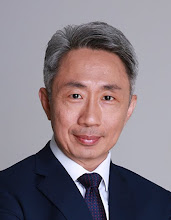World leaders in the headlines this week:
From time to time, in my younger days, I was too much of a disciplinarian, and did things that I regretted. Nowadays I very hardly have to mete out punishment for everyone to get the message. As judge, jury and chief executioner, I have plenty of different sentences at my disposal. A simple yet deadly one is silence. It did not require any public hanging. Everyone likes to be acknowledged and informed. The recipient, with his/her wings clipped knew they are in the cold storage. The severest penalties of all is the cutting loose. If, after trying as I might, I could not get someone to fit into our system, I let them go. You cannot build a team with blithe free spirits.
Once you say farewell to, you say goodbye to success and set the stage for anarchy.
Punishment is not something most management texts talk about and many texts points out that it is not a viable option for shaping behavior. I hope what you read here has provoked you to think about leadership in a new way.
After all, true leadership is not so much about what is in your head as about what is in your heart and how you use that to inspire people to greatness.
- Pakistan Prime Minister Nawaz Sharif was ousted on corruption charges.
- A national strike and pockets of violence erupted in Venezuela deploring the possibility that their President could gain more sweeping powers.
- A picture of the Kyrgyz president's youngest daughter feeding her baby dressed in her underwear has sparked a debate about breastfeeding and sexualisation.
From time to time, in my younger days, I was too much of a disciplinarian, and did things that I regretted. Nowadays I very hardly have to mete out punishment for everyone to get the message. As judge, jury and chief executioner, I have plenty of different sentences at my disposal. A simple yet deadly one is silence. It did not require any public hanging. Everyone likes to be acknowledged and informed. The recipient, with his/her wings clipped knew they are in the cold storage. The severest penalties of all is the cutting loose. If, after trying as I might, I could not get someone to fit into our system, I let them go. You cannot build a team with blithe free spirits.
Once you say farewell to, you say goodbye to success and set the stage for anarchy.
Punishment is not something most management texts talk about and many texts points out that it is not a viable option for shaping behavior. I hope what you read here has provoked you to think about leadership in a new way.
After all, true leadership is not so much about what is in your head as about what is in your heart and how you use that to inspire people to greatness.







